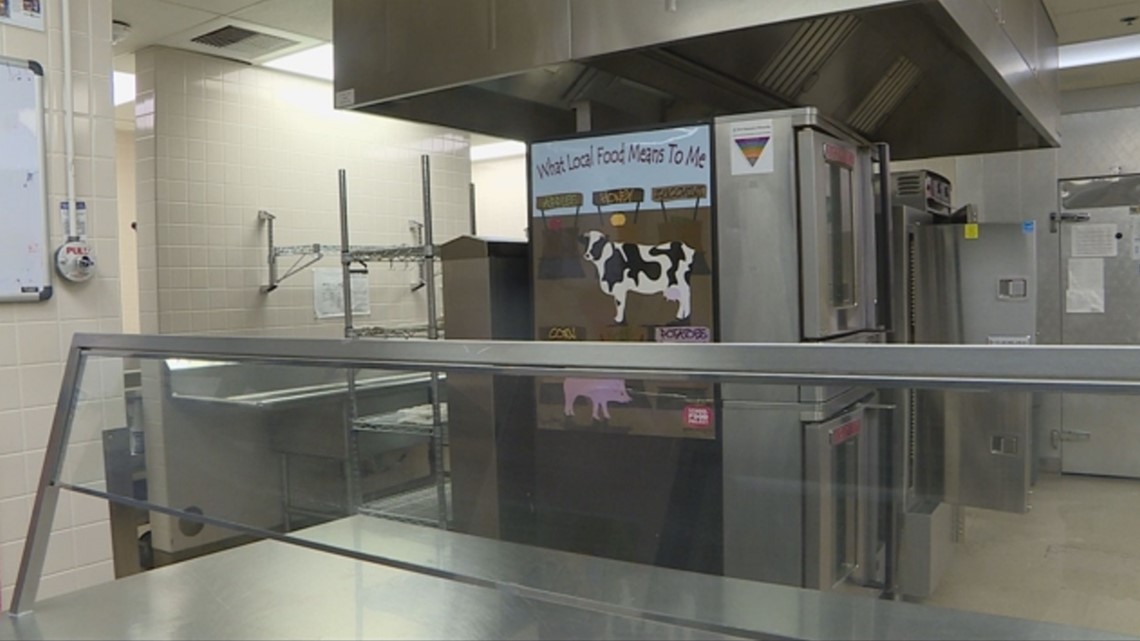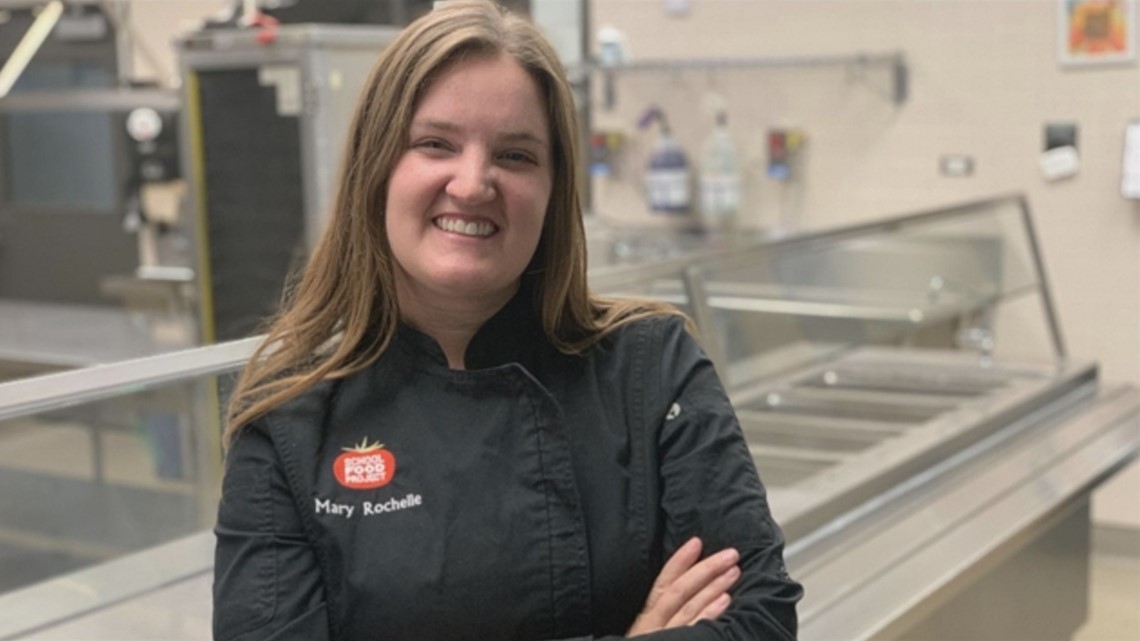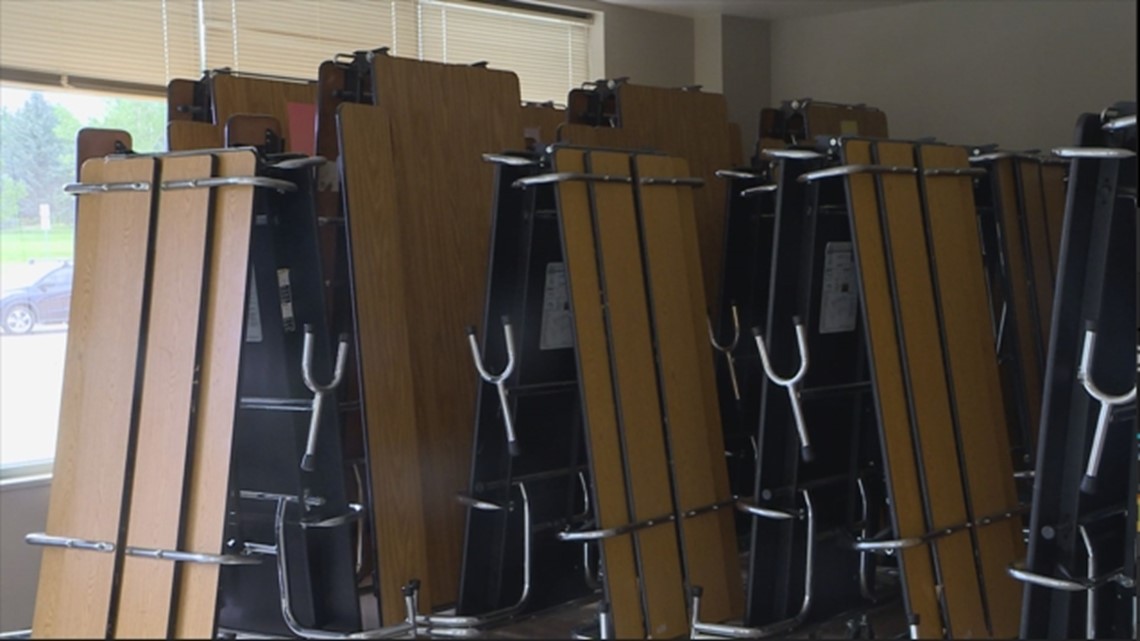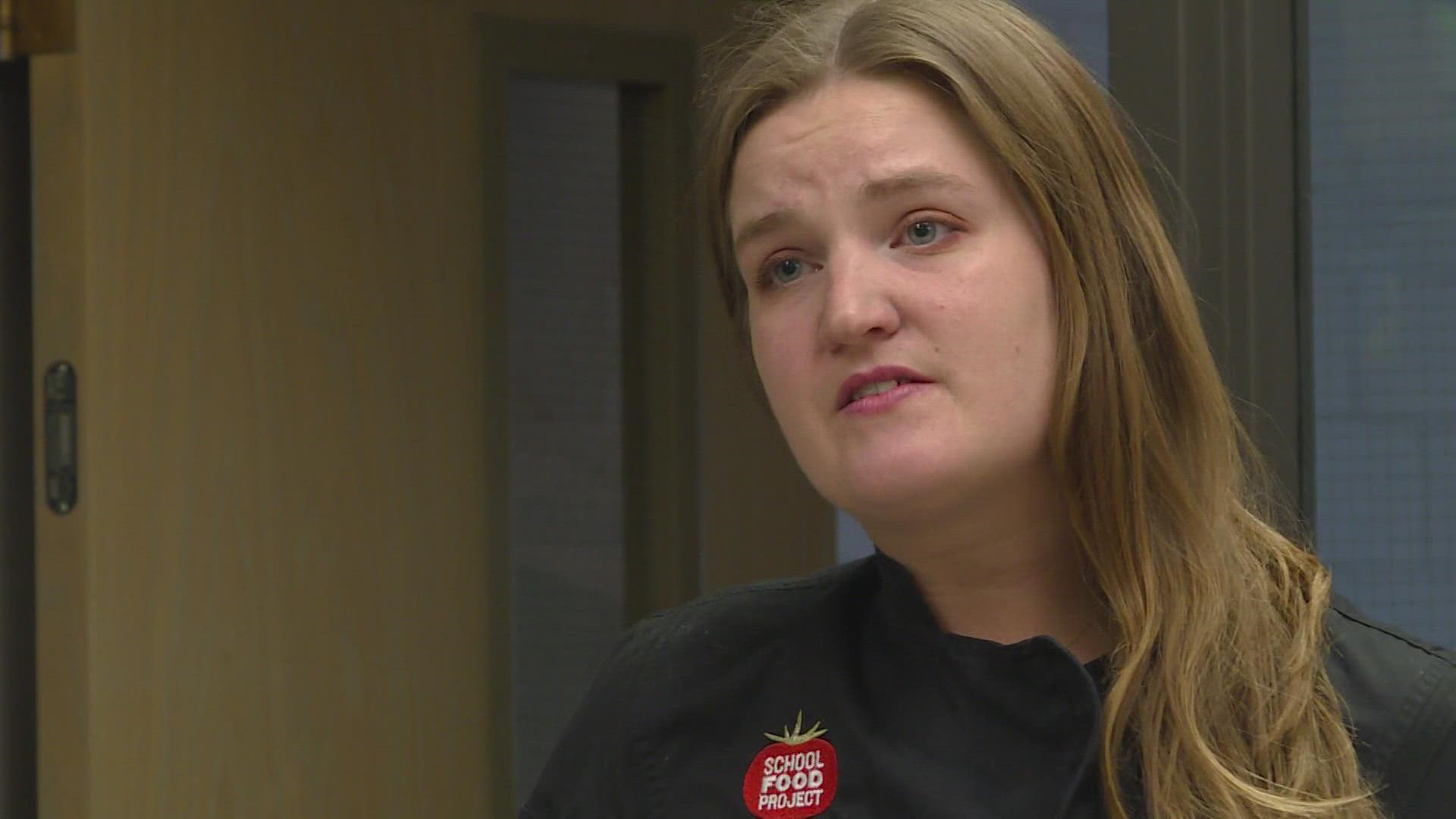SUPERIOR, Colo. — When the pandemic started, a new federal act allowed for kids across America to access free school meals, regardless of their socioeconomic status.
It was set to expire on June 30, until Congress extended the access this month. It's now set to stay in place through summer, but end before the fall academic year.
In November, Coloradans will vote on a measure that, if approved, would make free school lunches possible for any student, without economic qualifications. It would go into effect for the 2023-2024 school year.
RELATED: This bill could fund school lunches for all students by limiting some state income tax deductions
Still, schools in Colorado are bracing for the federal program to end, and helping make sure families are prepared.


"Kids need food to learn if they're hungry."
The cafeteria is known to be one of the loudest spots in an elementary school.
"Because kids are excited to get their meal for the day, they're coming through," said Mary Rochelle, the Programs, Grants and Communications Manager for the School Food Project at Boulder Valley School District. "So our staff work really hard to get kids through really fast, really efficiently."
Before the pandemic, she estimates that around 20% of BVSD's students qualified for free or reduced meals.
She said there was a qualification process that included required paperwork, which she said at times was a barrier for families that qualified.
"You had to share all of your income information to prove that you were above the lowest certain income threshold to qualify your student for either free or reduced meals," she said. "A lot of times, families for different reasons have trouble filling out that paperwork, whether it's a language barrier, parents being busy working multiple jobs, maybe they don't know that they have to do that. There's a lot of reasons why families don't fill out the paperwork. And what that means is that their kid doesn't have food at school, which is a huge barrier to their education and well-being."
But the last few years, she said, have been helpful because they were able to universally offer free school meals, with no qualifications necessary.
She said they saw a 40% increase in the number of meals they served to kids in general, since the program was enacted.
"Kids need food to learn if they're hungry," she said.


She said the extension of the program won't impact their summer plans, as they already have a program that offers meals during the summer.
But she is concerned about the following school year. She said they're now working to get the word out to parents through platforms like text messages, emails, newsletters and more.
"We don't want anybody to show up on the first day of school without lunch money, without having applied for free and reduced meals. We want to be able to feed kids," she said.
She said back in January, when they first started to inform parents that school meals may not be free the following academic year, they heard from families impacted by the Marshall Fire.
"So there definitely are families who were impacted by the fire who are still figuring out where they're going to live in this next school year. And now they're going to have to deal with paying for school meals if they don't qualify for that free and reduced limit," she said.
Inflation, staffing shortages and more have also impacted their food services, she said.
Overall, she said, they'll continue working to feed students.
"I think I would tell parents, we're here to serve your kids. We're here to help them have a great experience at school. We want to feed them healthy foods," she said.


Other districts respond
Englewood Schools said they served 21.5% more school lunches in the 2021-2022 school year than they did in 2018-2019.
"The National School Lunch Program is extremely vital for students' success in school and critical to their well-being," Nicole Withee, the district's Nutrition Services Site Supervisor, said in an email. "Research shows that students who eat school meals have improved attendance, behavior and academic performance. Having universal free meals would also help to alleviate food insecurity and reduce the stigma associated with school meals."
In Arapahoe County, where the school district is located, the number of people using the Supplemental Nutrition Assistance Program (SNAP) is also increasing.
Data provided by a county spokesperson showed there were 23,794 people using SNAP in April 2020 and 28,015 in April 2022.
"With the cost of living skyrocketing, especially here in the Denver Metro area, even families who may have been able to scrape by and afford meals for their kiddos in the past have now seen a hike in rent/housing, and the cost of food and other goods," Withee said.
Withee said the federal government reimburses the district for one breakfast and one lunch served to each student daily, with funding to provide food primarily coming from the federal government's reimbursement.
A spokesperson for the School Nutrition Association said before the extension was approved by Congress, that they advocated for an extension of federal waivers "because of the unprecedented supply chain, cost and labor challenges these programs have faced and to ensure students maintain access to healthy meals."
SUGGESTED VIDEOS: Education stories from 9NEWS

